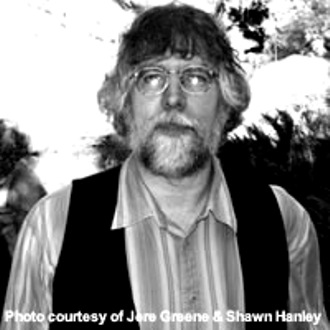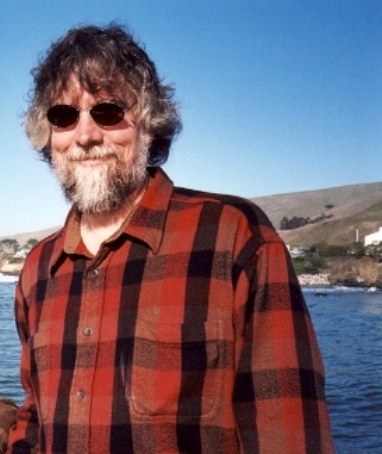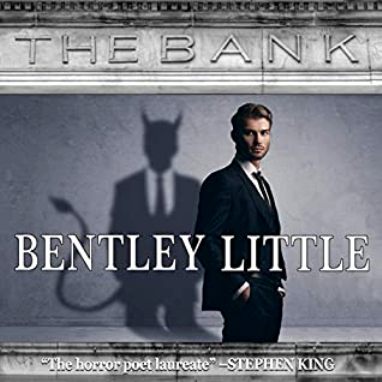

On this month's Special Page:
A brand new, exclusive interview with Bentley Little
IN THE "SPECIAL PAGE" ARCHIVES:
Simon Clark
John Russo
Mark Lukens
Joe R. Lansdale
Douglas Clegg
Dale Kaczmarek
Owl Goingback
Interview with Bentley Little
by Jeani Rector
Q. I will start with what is in the news everywhere: Covid-19. How are you handling it personally? Since writing is a solitary vocation, does it affect your work?
A. First of all, I’m continually shocked at how stupidly people are behaving during this pandemic. We’ve known for months about what works to mitigate transmission of the virus (all you have to do is compare the deaths in Asian countries to those of the United States to see that wearing masks really is effective), yet some people are protesting that these measures infringe on their freedom. Really? They’ll register their cars with the government, they’ll obtain driver’s licenses from the government, they’ll stop at red lights because the government tells them to, but safety protocols during a worldwide pandemic are a bridge too far? Give me a break. There also seems to be an anti-science attitude out there that I find very worrisome. I’m glad there’s now a vaccine, but, to be honest, I’m worried that not enough people will take it to provide herd immunity.
But the pandemic has not had much of an impact on my lifestyle. My usual day consists of sitting alone in a room and writing, so there’s not much of a change. And while I do reference the pandemic in the novel I’m writing right now, that’s only for verisimilitude, to place the action in a particular time and place. It hasn’t seeped into the content of my fiction—at least, not yet.
Q. You have been writing horror for most of your career. Sometimes you vary your work with other genres like THE DISAPPEARANCE, but horror is your main love. What is your attraction to horror?
A.That’s just the way my mind works. As a child, I enjoyed being scared, and I would consciously look for ways to scare myself. Which often led me to find moments of terror in things that weren’t even supposed to be scary. I remember being frightened by pictures in children’s books, by a comical haunted house in a Laurel and Hardy short, by the light in our hallway. An incredibly cheesy werewolf on an episodic TV show terrified me so thoroughly that all I could do was stand on the couch and scream until my dad carried me out of the room. As I got older, I was also impressed by the literary depth of horror fiction. This was literature that talked about big issues: life and death, good and evil. Even now, just on a gut emotional level, it’s horror fiction that speaks to me.
Q. As a result of no presence on the internet, you have become an enigma to many; a mystery. Since you are a mystery to most, why not tell us something here that most readers would not know about you?
A. I guess the one thing I would tell readers about myself is that I’m not a mystery. I’m maybe just old-fashioned. I live a regular life; I write books that I hope people will read, but I have no desire to share details of my life with strangers or socially engage with people I don’t know. That seems like a tremendous waste of time to me.
Q. In 2007, your story “The Washingtonians” was adapted into an episode of Masters of Horror. It was made into a story containing black humor. Do you feel it was a good representation of your work? How did you feel about your print moving to film?
A. I thought the filmed version of “The Washingtonians” was terrible. And I was surprised it turned out so badly. I think the story had a good basic idea, and the director, Peter Medak, made one of my favorite horror films, “The Changeling.” But while I liked the scenes with the family and thought the first part of the episode was fine, the Washingtonians themselves were cartoony and ridiculous. And I disliked the way the ending of the story was changed, although I’m pretty sure that was done for budgetary reasons. Still, it was fun to see my work brought to the screen.
Q. You came up through the small presses, which is why you are kind to small presses such as The Horror Zine today. Do you feel that small presses can still help other writers’ careers?
A. I honestly don’t know. I came up during an analog age, when readers subscribed to magazines, and even mimeographed zines could be found in the racks of record stores. These days, so many markets for up-and-coming writers seem to be online. And there is so much online; so many other distractions, that I fear these stories may get lost in the shuffle. My hunch is that more attention was paid to small press publications in the past because there was more focus on them; their presence meant something to both readers and writers. But this is all conjecture on my part. I don’t really know.
Q. Let’s talk about your newest novel, THE BANK. I have read it and reviewed it HERE. I loved this book because you take an ordinary person and thrust him into extraordinary circumstances. I also love how the events take place in the character’s back yard, in this case, a bank located next to Kyle’s bookstore. Tell us about writing this book.
A. The seed for this story was probably the Great Recession of 2008. It made me even more aware than I already was of how much sway banks and financial institutions hold over our lives. And with things like hedge funds, where rich people could make money by betting against the economy, ensuring that they would do well whether employment levels went up or down, whether ordinary people were happy or hurting, it just seemed to me like a horror story waiting to happen I just sort of scaled it down to a more personal level by focusing on a bank in a small town.
Q. You often champion the “little guy” against an authoritarian, structured business like a bank (or Homeowners’ Associations or academies or stores). Do you choose your ideas from events that happen in your own life?
A. I often do, yes. As a fledgling writer in the 1980s, I was absurdly dependent on the mail, so I wrote THE MAILMAN. I was upset that a big box store was putting local shopkeepers out of business, so I wrote THE STORE. I had a boring day job in an office, so I wrote THE IGNORED. I tend to write a lot of complaint letters, so I wrote DISPATCH. And on and on. Sometimes I come up with an idea that I just like, that I think will make a good horror story, but more often than not, I’m settling grievances with my work.
Q. You have once said that writing is a compulsion; that you wrote for as long as you can remember, and not for recognition in those days, but because you simply had to. Do you feel that there is a fire burning inside most writers—that writing finds the authors, and not the other way around?
A. I definitely think so. I can’t tell you how many times people have come up to me and said, “You know, I thought about being a writer when I was young.” The truth is that you don’t think about being a writer. Either you are or you aren’t. A facile facility with language that will enable you to get a good grade on a story in your English class does not translate into your being anything remotely resembling a writer. You have to do the work. And you have to have that need, that compulsion, to put words down on paper. Real writers write—whether they get paid for it or not, whether it’s convenient for them or not, whether they even have the time for it or not. They just do it.
Q. Most writers are also voracious readers. What books by other authors stand out to you and why? As a writer, do you feel you read books differently than a layperson?
A. There are literally hundreds of novels that have influenced me, impressed me, stand out to me. But off the top of my head, I would say that Ken Grimwood’s novel REPLAY is something that blew me away when I read it; that I think everyone should read. In fact, I actually used to buy used copies of this book ad give them out to people. The ovel was optioned for film back when it came out, but Grimwood told me that everything fell through once the movie “Groundhog Day” was released, since the two have a somewhat similar premise. I like “Groundhog Day,” but REPLAY is far better. Serious and much more profound, with a heartbreaking sese of melancholy. I think it’s a great book.
Q. Because most of my readers are also writers, you know I have to ask you this: Do you have any tips for emerging writers?
A. The standard advice is write, write, write! That’s fine, as far as it goes, but my advice would be to submit, submit, submit! You’re not going to get anywhere if no one sees your work. You need to put your writing in front of readers. That’s sometimes a long hard road, and you’ll have to have a thick skin to put up with all the rejections, but it’s important to make sure you’re submitting your work. All of it. And often. If one magazine rejects you, dust off your story and send it somewhere else. If you’re any good, someone’s going to want it. And if they don’t, you might at least get feedback that will help make it better. If you want to be published, send your work out there. Be brave!

Photo credits: Photo credits: Black and White by Jere Green and Shawn Handley; Color by Wendy Li
Bentley Little is the author of numerous novels, short stories, articles and essays. He originally came up through small presses like us.
Bentley has won a Bram Stoker Award for The Revelation and a nomination for The Summoning.
Bentley Little is notorious for not participating in anything on the internet, which makes this website interview elusive. The Horror Zine communicates with Bentley though mail delivered by the U.S. Post Office.

